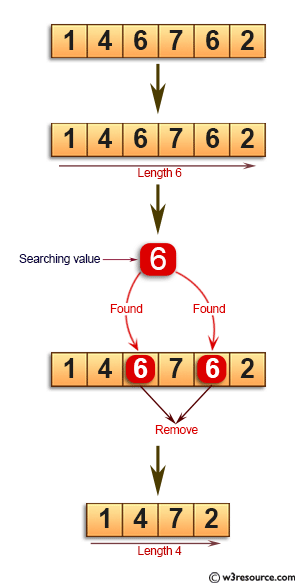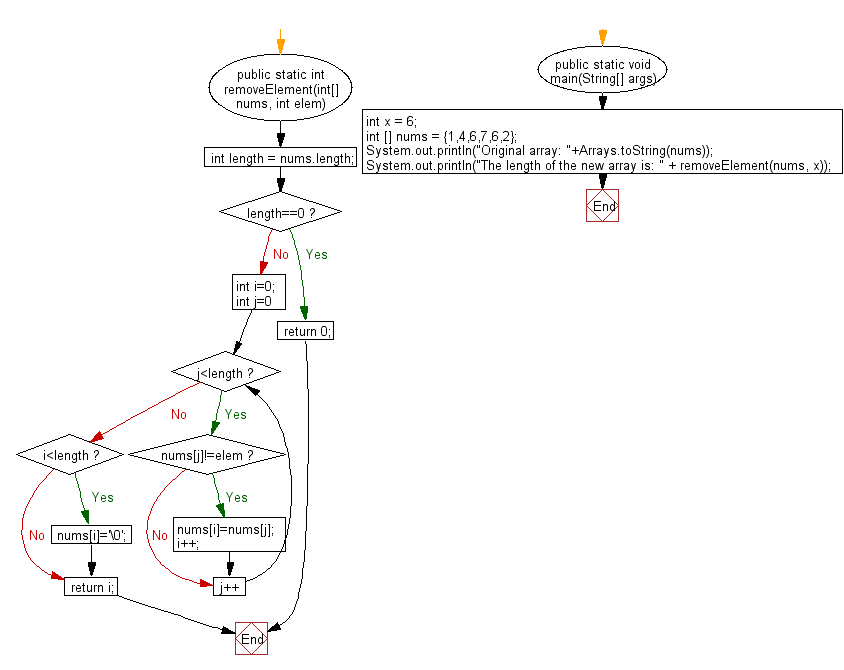Java: Remove all occurrences of a specified value in a given array, return the new length
Remove Element in Array
Write a Java program to remove all occurrences of a specified value in a given array of integers. Return the updated array length.
Pictorial Presentation:

Sample Solution:
Java Code:
import java.util.*;
public class Solution {
/**
* Remove all occurrences of a given element from an array and return the new length.
* @param nums: A list of integers
* @param element: An integer to be removed
* @return: The new length after removing the element
*/
public static int removeElement(int[] nums, int elem) {
int length = nums.length; // Get the initial length of the array
if (length == 0) return 0; // If the array is empty, return 0 (no changes)
int i = 0; // Initialize the index for the new array
// Iterate through the original array
for (int j = 0; j < length; j++) {
if (nums[j] != elem) {
// If the current element is not equal to the element to be removed
// Copy it to the new position in the array
nums[i] = nums[j];
i++;
}
}
// Replace elements beyond the new length with a sentinel value
if (i < length) nums[i] = '\0';
// Return the new length (the value of 'i')
return i;
}
public static void main(String[] args) {
int x = 6; // Element to be removed
int[] nums = {1, 4, 6, 7, 6, 2}; // Original array
System.out.println("Original array: " + Arrays.toString(nums));
// Call the removeElement function and print the new length
System.out.println("The length of the new array is: " + removeElement(nums, x));
}
}
Sample Output:
Original array: [1, 4, 6, 7, 6, 2] The length of the new array is: 4
Flowchart:

For more Practice: Solve these Related Problems:
- Write a Java program to remove all even numbers from a given array.
- Write a Java program to remove duplicate elements from an array without using additional data structures.
- Write a Java program to remove elements from an array that appear more than twice.
- Write a Java program to remove elements from an array such that the remaining elements are in increasing order.
Go to:
PREV : Merge Two Sorted Linked Lists.
NEXT : Remove Nth Element from End.
Java Code Editor:
What is the difficulty level of this exercise?
Test your Programming skills with w3resource's quiz.
